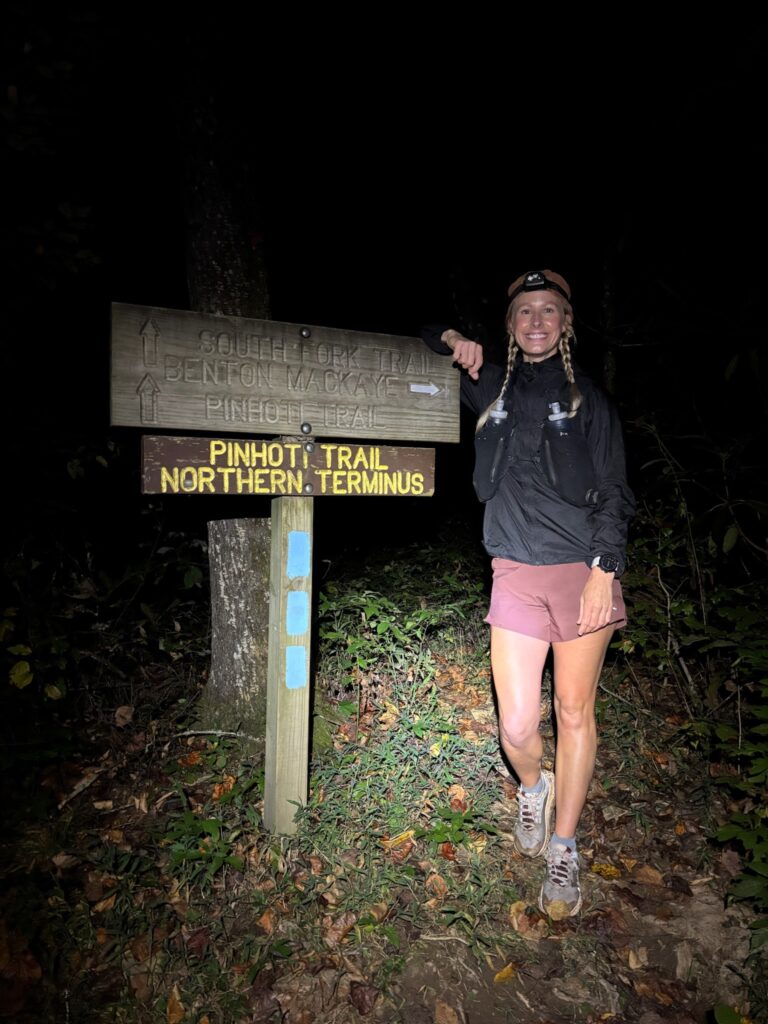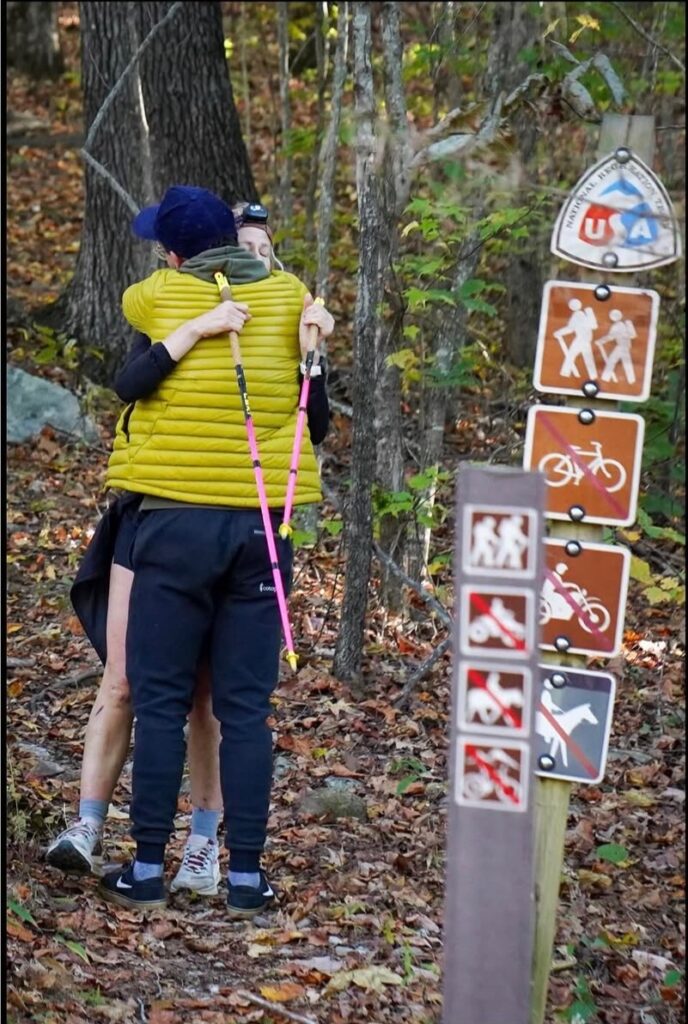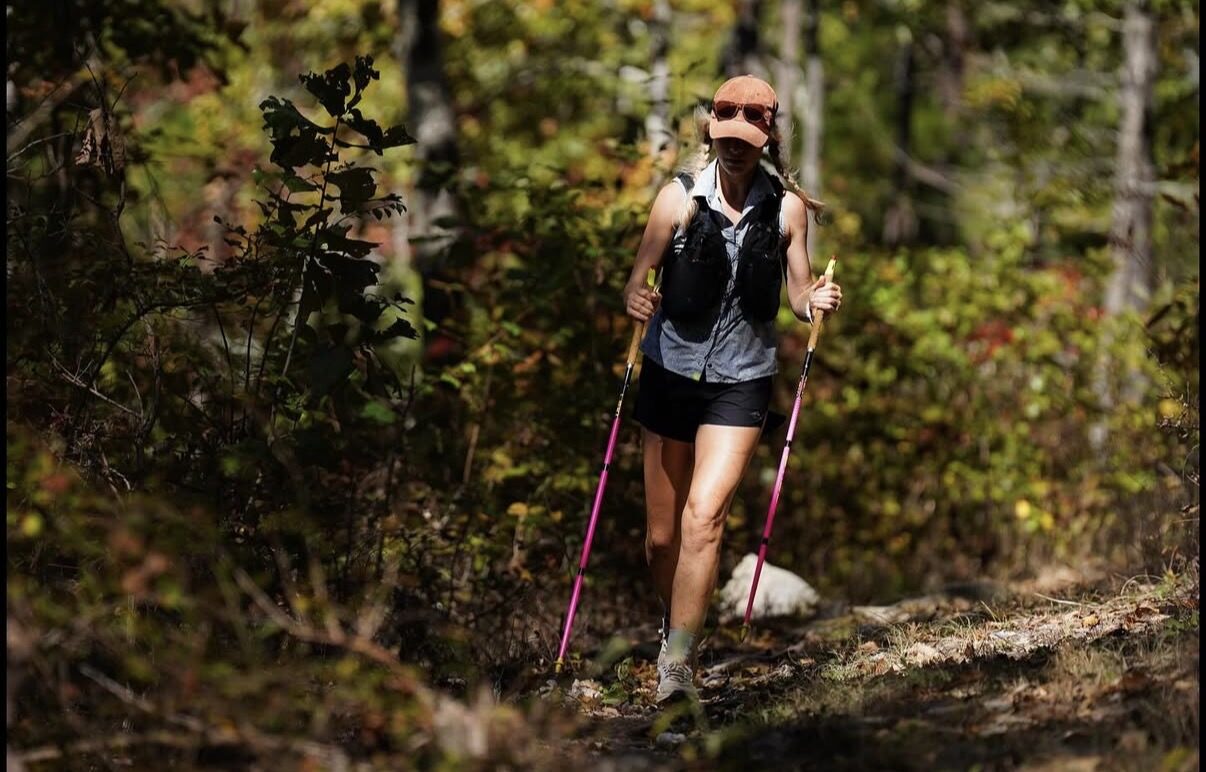When Birmingham runner Ashlie Ithurburn laced up her shoes on the morning of October 16, she wasn’t just heading out for a run—she was setting out to make history. Five days, six hours, and thirty-nine minutes later, she reached the summit of Flagg Mountain, setting a new Fastest Known Time (FKT) on the 335-mile Pinhoti Trail and shaving nearly forty minutes off the previous overall record.

(Pete Schreiner/Contributed)
For Ithurburn, 37, the Pinhoti is much more than a trail—it’s where her love of running first took root. “The Pinhoti Trail will always hold a special place in my heart,” she said. “It’s where I first learned to trail run and where I found a community that changed my life.” That community has become her anchor over the years, supporting her through races, recovery, and now, this record-breaking feat. “This year, I wanted to bring it all full circle—to link the entire route in one big effort. A challenge, and a homage.”
Her journey began in northwest Georgia, where the Pinhoti connects with the Benton MacKaye Trail, and ended at Flagg Mountain near Weogufka, Alabama—the southernmost Appalachian peak rising above 1,000 feet. Winding through national forests and wilderness areas, the Pinhoti offers one of the most scenic and demanding routes in the Southeast. This year marks the trail’s 50th anniversary, making Ithurburn’s accomplishment an especially meaningful celebration of endurance, grit, and the Alabama outdoors.

(Pete Schreiner/Contributed)
“Chasing an FKT always seemed just beyond my reach,” she admitted. “It was something I admired from afar but never imagined for myself. But deep down, I believed that if the stars aligned just right, maybe it could be within reach.” With her husband, Matt, and a small but mighty crew by her side, she decided to give the attempt everything she had. “With their unwavering support,” she said, “we decided to go all in.”
As each day passed, she pushed through exhaustion and pain, often running more than 60 miles per day. Yet what motivated her wasn’t just the finish line—it was what it represented. “For me, representing women on these trails means proving that we belong here,” she said. “Not just doing hard things, but crushing them. I wanted other women to see that those intimidating goals are worth pursuing, even when the odds aren’t guaranteed.”
Matt Benefield, Executive Director of the Pinhoti Trail Alliance, praised her achievement as “something extremely close to impossible.” He explained that few athletes ever attempt the FKT, and fewer still complete it. “What Ashlie has done is finish in her first attempt and set not only the female record but a record faster than the male record,” he said. “It’s extraordinary.”

(Pete Schreiner/Contributed)
Ithurburn hopes her record inspires others to explore Alabama’s trails and care for the places that make such journeys possible. “Now, more than ever, our trails, state parks, and national parks need our love and care,” she said. “They offer endless beauty, healing, and wonder. My hope is that my story encourages someone to step outside and experience it for themselves—whether it’s an afternoon hike with your kids, a section hike with friends, or maybe even a thru-hike from Alabama to Georgia.”
Originally from California, Ithurburn has proudly called Birmingham home for more than a decade. She balances her life as an ultrarunner with her work as an exercise interventionist researching therapies for Multiple Sclerosis and Parkinson’s Disease, as well as being a wife to Matt and mother to eight-year-old Finn.
In the end, she hopes her accomplishment will spark something bigger than a stopwatch result. “Whatever your ‘Pinhoti’ looks like,” she said, “step outside your comfort zone and see what your body and mind are capable of. Because being in nature—fully present, fully alive—is the greatest treasure of all.”




